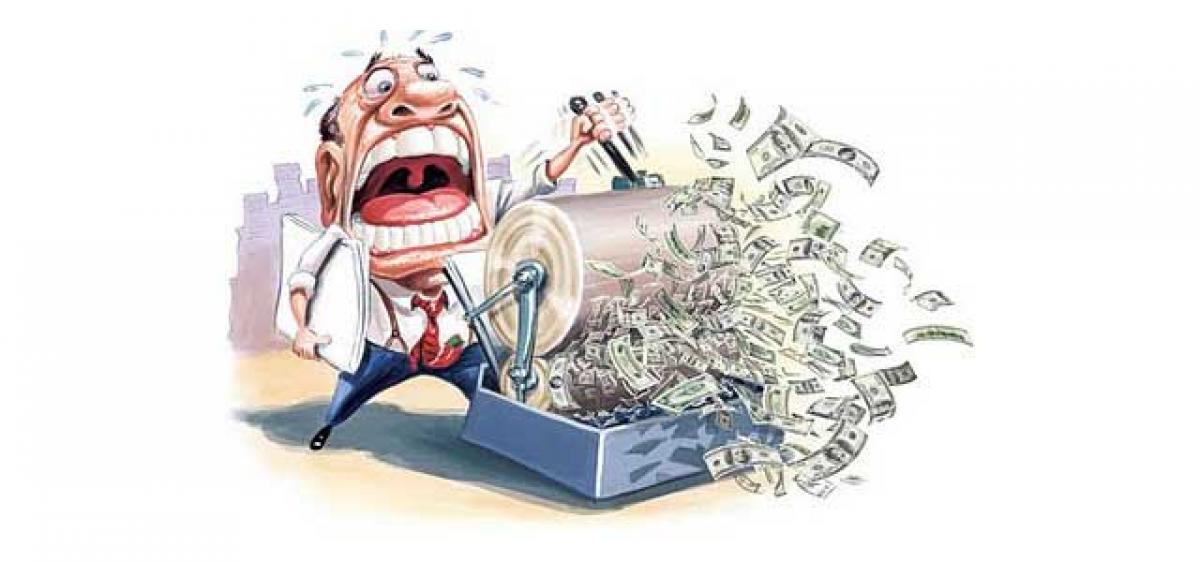In the face of an unprecedented crisis, we have to be realistic, responsible and cautious.
This is a supply shock added to a mandatory shutdown of the economy. As such, a serious response must be supply-side driven. It is ludicrous to try to stimulate demand with printed money and public spending in a forced lockdown where any extra demand will not drive supply up, even may drive it down.
A mandatory shutdown due to a supply shock is not solved with government spending or demand-side measures. Printing money and lowering rates help the already indebted and governments with already historic-low bond yields, deficits are already going to soar due to automatic stabilizers, so governments need to work on three things:
First, make sure that once there is a tested and approved vaccine, the production, distribution, and healthcare networks are going to be adequately prepared to respond to the population requirements.
Second, make sure that businesses don't collapse due to working capital build in a domino of bankruptcies that leads to mass unemployment.
Third, eliminate all unnecessary spending to effectively use all fiscal space to mitigate the crisis effects and allow the economy to breathe and recover.
Governments that overspent in growth times, massively increased debt and ignored the pandemic risks only to then create a widespread lockdown cannot present themselves as the solution.
Small and medium enterprises do not need a government to incentivize demand, because this is not a demand problem, the shutdown is imposed by law due to a health epidemic that lawmakers preferred to ignore.
We cannot fall into the trap of believing that what the economy needs is more monetary easing when it fails, and if it does not work then we must try even more monetary insanity.
Monetary insanity is not the solution to monetary excess and lunacy.
It is our duty to warn of the risks of falling into irresponsible optimism, precisely so that we can get out of this crisis sooner and better.
What recovery will there be?
Estimates of economic growth are plummeting at breakneck speed . The closure, albeit temporary, of economic activity, transport and trade, will mean an inevitable recession. The biggest mistake policymakers can make is to believe in a V-shaped recovery. All governments should prepare for an L-shaped recovery. If I am wrong, economies will be stronger anyway, but if I am right, massive stimulus implemented only three weeks after a market all-time high and immense deficit spending policies at the very beginning of a pandemic crisis will cripple the economy to an irreparable situation.
Leading economies have a great capacity to face a shock like this. This is not the case in Italy or Spain. Calculations for the United States indicate that unemployment will skyrocket to 6.5%, in the case of the United Kingdom to 7% and in Germany to 6%. In weak and highly intervened economies, the combination of already high unemployment, high debt, and high government spending can lead to a Greece-style crisis when the measures to address a forced shutdown come from more government intervention.
In the Eurozone, most of the plans announced by governments are based on three important flaws:
Ignore that many countries were already close to a recession in 2019,
assume a low-impact parenthesis and
estimate a rapid and exponential recovery that will inflict no real damage on employment or public and private accounts.
In the eurozone, Germany, France, Italy, and Spain's fourth-quarter GDP already reflected a significant slowdown, so the European Commission, ECB and governments' responses start from the wrong diagnosis: that the problem we are facing is one of demand and access to credit and not of sales collapse due to an imposed lockdown, with an accumulation of tax liabilities and fixed costs.
The United States must avoid making the mistakes that the eurozone nations are already starting to make.
Deadlines
European governments are unwillingly creating a worse long-term impact on the economy by giving citizens unrealistic small doses of negative information and extending lockdowns in fifteen days periods. This is leading to massive cash flow problems all over the economy because businesses find that the support mechanisms only last for a few days while the extension of losses destroys cash flow and balance sheets. Businesses are seeing current invoices delayed or unpaid while orders for November and December are being canceled.
Few will deny that it is necessary to take measures to close airspaces and cities, but in that same understanding, governments should allow solutions to real problems. By the time the developed economies' government plans have completed its period of application, cities, and airspaces in other countries in the world will begin to close, creating a ripple effect. The collapse in activity that today affects mostly China and Europe, is likely going to spread to Latin America and India with a month lag.
Of course, a vaccine will be created, there are already great news from Seattle and twenty possible vaccines being tested, but it will take up to 18 months to approve it and, most importantly, it will take more months to manufacture those vaccines on a global scale. This cost is underestimated.
The vast majority of companies do not face a problem of access to credit (there is ample liquidity and credit supply on solvent demand and at very low rates), they face complete closure and layoffs due to cessation of activity. Zero income, but fixed costs and accumulated taxes. Many businesses will find that delaying tax payments or provide loans doesn't solve anything.
Most businesses problem is not one of loan guarantees, but of the impossibility of requesting a loan. We are not in a crisis due to lack of access to credit, but rather a crisis due to the disappearance of activity.
The private contribution
Governments expect banks to provide massive relief through more loans, ignoring the fact that banks in the eurozone still have billions of non-performing loans and face a massive increase in delinquencies in Europe but also in their growth subsidiaries, mostly in Latin America and Asia.
Banks are going to face an increase in default on existing assets both in Europe and abroad. Banks can cope with this situation and they have done it well, but they are not going to be able to increase risk by tens of billions while helping their current clients to come out of the crisis Most Europen governments assume a balance sheet strength in private agents that is neither evident in large companies nor is it existent in SMEs (small and medium companies).
Additionally, Europe's large companies already have high levels of indebtedness, although it has decreased admirably in recent years. Net debt to EBITDA in non-financial companies is already likely to soar due to the downgrades in earnings and cash flow.
Credit, liquidity and short-term aid measures are suitable for those who would have survived anyway before these new central bank and government measures. Liquidity was immense, rates were low and the banks did everything possible to lend.
The losers from this crisis will likely be those who have done their homework and live month by month, without large assets to cover a loan and without muscle to face months of zero income. And those, the ones who are going to suffer the most these months, were already drowned in taxes last year.
Our proposals
Some politicians have mentioned the concept of "war economy". And I think it is a correct one. For a war economy, there can be no bull-market administration.
The first thing that the Government should announce in the face of this challenge is a drastic reduction to zero of all the non-essential items of the budget, unnecessary subsidies, duplicate expenses, and a reduction in ministries and senior officials according to the moment.
The second is to work with the private sector to guarantee that, once a vaccine is available, all production and distribution channels are well organized so that it can reach the population quickly and efficiently.
The third is a complete tax exemption during the crisis period for companies, families and the self-employed. Zero income, zero tax. This will allow, together with liquidity lines at no cost, to survive the lockdown.
Governments are already going to consume all the fiscal space they have and more. The idea is that this enormous liquidity at negative real rates may be used for something effective for once, not to increase structural imbalances in current spending.
This is not asking the state to intervene, it is asking the government to stop intervening so much, stop the tax burden machine during an unprecedented business cataclysm, and unite in responsibility and austerity with those who are fighting every day to survive.
If governments and central banks decide to multiply the previous mistakes adding larger ones, like direct monetization of spending or helicopter money, they will add a monetary crisis to a mandatory supply shock. A mistake is not corrected doing the same but more aggressively.
We must ask the government to stop intervening so much, not to exploit an unprecedented business cataclysm to increase interventionism.
If governments insist on maintaining the few tax revenues they can scratch from the wreckage they will jeopardize the receipts of 2020 and those of 2021 and 2022, because of the massive increase in unemployment and closure of businesses.
Keeping the tax wedge system in a crisis of this magnitude generates a double negative. The domino of business failures and job losses will take years to recover, and with it, tax bases and receipts. Second, the potential growth is curtailed because of disproportionately high regulatory taxation, making it even more difficult to attract the little investment that could come after the recovery.
You cannot do war economics considering that everyone has margin except the enormous administration and political structure.
A widespread economic closure shock is not solved with demand measures or using the private sector balance sheet to add debt and accumulate risk, but with urgent supply measures that respond to the reality of businesses and, with them, of workers and families.
The US and the world will rise from this crisis. What the government has to do is allow it. The government is there to facilitate, not to pick winners and losers.


Commenti
Posta un commento